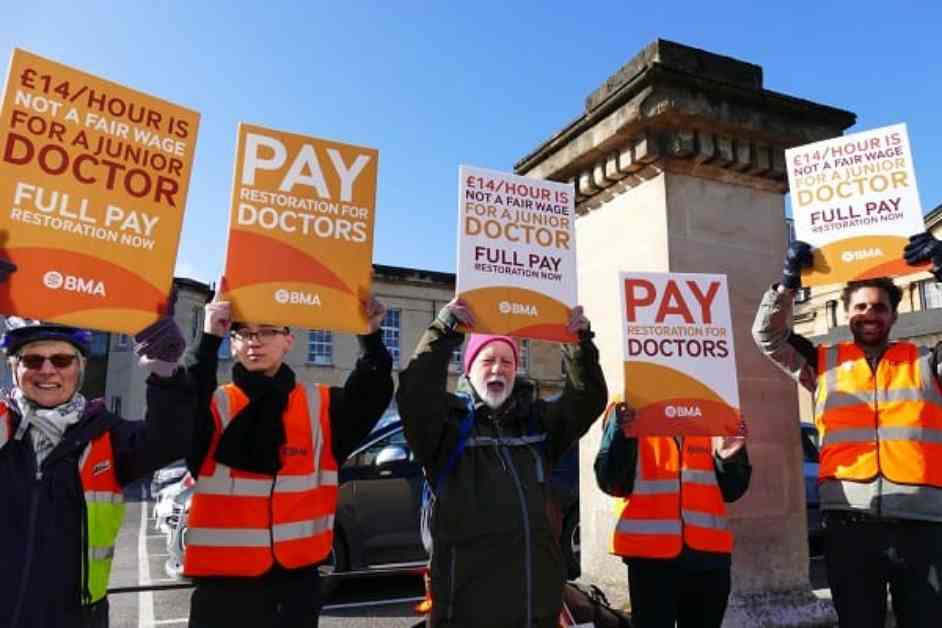Junior doctors in England are still considering the possibility of future strikes despite the recent acceptance of a 22.3% pay deal by The British Medical Association’s (BMA) junior doctors committee. The decision to accept the pay deal, which was proposed by the Labour Party and averages out to a 22.3% increase over two years, brought an end to a long-standing battle over pay issues. However, junior doctors, represented by Dr Vivek Trivedi, the co-chairman of the BMA’s Junior Doctors Committee, have made it clear that this is just the beginning of their efforts to address pay concerns and ensure the future sustainability of the healthcare workforce.
Dr Trivedi emphasized that while the pay deal represents a significant improvement for junior doctors, there is still more work to be done. He highlighted the fact that many doctors had experienced a significant pay cut since 2008, and the recent offer helps to reverse some of that trend. However, he stressed that the journey towards fair pay is far from over. Junior doctors have been advocating for better pay and working conditions to retain talent within the healthcare system and prevent doctors from seeking opportunities abroad in countries like Canada, Australia, and New Zealand.
The sentiment among junior doctors is mixed, with some feeling that the pay deal falls short of their expectations. Dr. Laurenson, another representative of junior doctors, noted that a third of those who voted in the ballot believed that the deal did not provide enough security or certainty for the future. The concern lies in the need for ongoing pay uplifts to address the erosion of real-terms pay cuts that have been experienced over the past decade. The focus now shifts to the upcoming pay review body’s recommendations in April, which will be crucial in maintaining the momentum towards pay restoration and addressing retention issues within the healthcare workforce.
Despite the acceptance of the pay deal, junior doctors are prepared to take further action if necessary. Dr. Trivedi made it clear that if the pay uplifts promised do not materialize in a timely manner or fail to meet the expectations of junior doctors, they will not hesitate to consider going back into dispute and potentially striking again. While strike action is viewed as a last resort, it is a tool that junior doctors are willing to use to ensure that their concerns are heard and addressed.
Health Secretary Wes Streeting acknowledged the challenges faced by the healthcare system, emphasizing the need to address the broken NHS and the need for reform. He expressed satisfaction that the offer had been accepted, ending the strikes and allowing the healthcare system to focus on addressing winter pressures. Streeting highlighted the importance of the pay deal as the first step towards cutting waiting lists, reforming the healthcare system, and making it more sustainable for the future.
As the healthcare system continues to grapple with challenges, it is essential for all stakeholders to work together to address the concerns of junior doctors and ensure that the workforce remains motivated and engaged. The recent pay deal represents a significant milestone in the ongoing efforts to improve working conditions and retain talent within the healthcare system. However, it is clear that more needs to be done to address the underlying issues and create a sustainable healthcare system for the future. Junior doctors are committed to advocating for their rights and will not hesitate to take further action if necessary to ensure that their concerns are heard and addressed.

